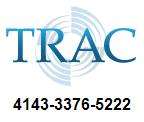- What are medical devices?
-
Any instrument, apparatus, appliance, in vitro diagnostic reagents and calibrators, material or other article, whether used alone or in combination, together with any accessories, including the software intended by its manufacturer to be used specifically for diagnostic and/or therapeutic purposes and necessary for its proper application, intended by the manufacturer to be used for human beings for the purpose of:
• Diagnosis, prevention, monitoring, treatment, or alleviation of disease
• Diagnosis, monitoring, treatment, alleviation of, or compensation for an injury or handicap
• Investigation, replacement, or modification of the anatomy or of a physiological process
• Control of conception
• Provision of information for medical diagnostic purposes by inspection of samples from the human body
This includes devices that do not achieve their principal intended action in or on the human body by pharmacological, immunological, or metabolic means—but may be assisted in their function by such means.
-
- Which authority is responsible for the filing/registration of MDs?
-
The filing/registration of class III domestic devices and all classes of imported medical devices are approved by CFDA. The filing/registration class I and II domestic devices are approved by food & drug administrations of municipal and provincial levels. Medical devices manufactured in Hong Kong, Macau and Taiwan are follow the procedures for imported devices.
-
- What is the validity of filing/registration certificates?
-
According to Regulations for the Supervision and Administration of Medical Devices revised on March 7, 2014, filing certificate for MDs is not limited and registration certificate is valid for five years, given that no major change is made to the product filed/registered.
-
- What are the necessary data the distributor of a medical device must have?
-
Registration certificate and any change;
Technical specifications with CFDA stamp;
Test report and any additional test report;
Final version of IFU submitted to CFDA.
-
- What are technical specifications of a medical device?
-
Technical specifications mainly consist of the requirements and test methods for the finished product of a medical device, where the requirements refer to functional and safety indicators and other quality-control-related indicators that can be used to evaluate the device.
-
- What are the requirements for IFU and labels?
-
The IFU and labels of a medical device must comply with the requirements in CFDA Decree No. 6 Administrative Regulations on IFUs and Labels of Medical Devices.
-
- Why is clinical trial necessary?
-
According to Regulations for the Supervision and Administration of Medical Devices revised on March 7, 2014, clinical trials is required for Class II and Class III medical devices.
-
- How to do clinical trials?
-
According to Regulations on Clinical Trials for Medical Devices, clinical trials should be conducted in CFDA-approved clinical trial sites per clinical trial plans compiled by clinical experts and approved by ethical committee that meets statistical requirements.
-
- Time and cost of clinical trials?
-
Clinical trials may take months to years depending on the specific product; the costs are charged by clinical trial sites following their charging policies.
-
- In what ways will a medical device be approved?
-
Class I: filing, change of filing;
Class II and III: initial registration, renewal of registration, change of registered items and change of approved items.
-
Q&A







